Join SEG and CIED for panel discussions and networking in the heart of Westminster with speakers from BEIS, BP, Transport for London, ADE and more.
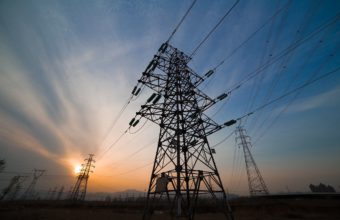

Join SEG and CIED for panel discussions and networking in the heart of Westminster with speakers from BEIS, BP, Transport for London, ADE and more.
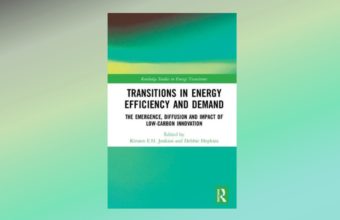
Research by the Centre on Innovation and Energy Demand (CIED) has been published as a book edited by Kirsten Jenkins and Debbie Hopkins.
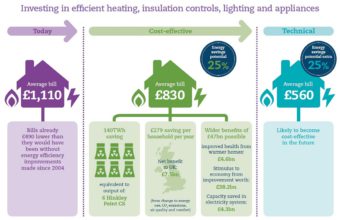
One quarter of the energy currently used in UK households could be saved by 2035 by cost-effective investment in energy efficiency, shows a new study.
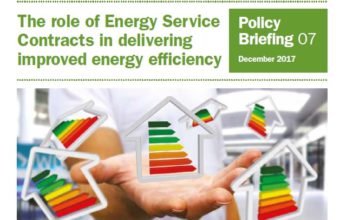
Public procurement frameworks provide the most effective route to encouraging uptake of Energy Service Contracts in public sector,says new CIED report
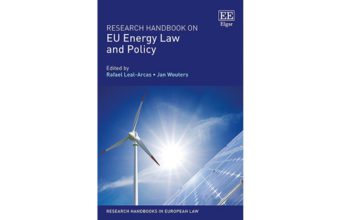
Jan Rosenow and Florian Kern contributed to a new edited book ‘Research Handbook on EU Energy Law and Policy’.

Energy wasted in UK homes is equivalent to output of six Hinkley C power stations, says new briefing by UKERC and CIED.

This post is by Paul Brockway, research fellow at the University of Leeds. He examines roles and relationships between energy, economy and society as part of UKERC’s research programme. This blog was initially published on the Green Alliance Blog. Energy efficiency is often seen as a win-win: falling energy use benefits consumers and the environment, whilst …
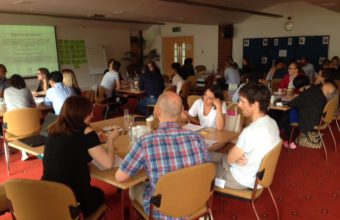
Thoughts and reflections on CIED Summer School 2017 By Bettina Zenz The CIED Summer School on ‘Accelerating Innovation to Reduce Energy Demand’ took place from 10-12th of July 2017 at the University of Sussex, Brighton. CIED’s first ever Summer School was certainly much anticipated by organisers and attendees alike, and brought together 28 doctoral, postdoc …

Dr Jan Rosenow has been appointed to the Expert Advisory Group for Scottish Government-commissioned project on energy efficiency policy effectiveness.
Listen to Dr. Marilyn A. Brown from the School of Public Policy, Georgia Institute of Technology, co-author of Fact and Fiction in Global Energy Policy, and co-recipient of the 2007 Nobel Peace Prize for her research on mitigating climate change in this short interview. …
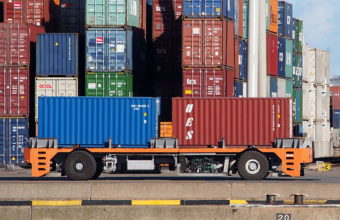
Dr Debbie Hopkins is coming to present research conducted by her and Dr Tim Schwanen on automated goods mobility. All welcome!

This project investigates the impact of energy efficiency improvements throughout the UK economy and along international supply chains, as well as using sophisticated multi-sector macroeconomic models to capture a much wider range of economic effects. This new project on economy-wide rebound effects significantly extends CIED’s work and is led by the Centre for Energy Policy at the University of Strathclyde.

Energy service contracts involve the outsourcing of energy-related services to a third party, or contractor. This project aims to identify the factors underpinning successful business models, to identify whether, how and under what conditions such models could diffuse more widely, and to assess their potential for reducing energy demand in order to provide recommendations for public policy.

What are the expected impacts of automated vehicles and smart mobility on energy demand in UK freight transport? How are these technological innovations legitimised by industry, policymakers and other actors? This project aims to find out.

Energy shops provide advice about energy issues to the public. Does advice through energy shops work, with whom and under what circumstances?

Will Brexit put energy efficiency progress in the UK at risk, ask Jan Rosenow, Pedro Guertler and Richard Cowart of RAP (Regulatory Assistance Project)? In electric appliances and heating systems – probably not. The biggest risk is in the building sector.UK policymakers will need to put efficiency first if they want to reach carbon targets …
CIED researcher reacts to the government’s announced reforms to its Energy Company Obligation scheme.
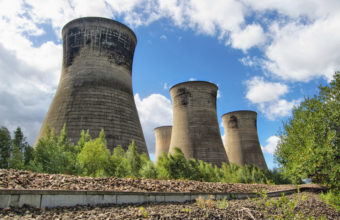
Guest blog by Dr David Vincent Since 1945, UK energy policy has undergone seismic shifts, starting with the energy industry nationalisations of the late 1940s and moving on to energy industry privatisations of the 1980s and 90s. These shifts were tempered with some ground-breaking, longer term thinking with respect to the climate change mitigation aspects …
Improvements in China’s energy efficiency may be associated with increased energy consumption, a new study has found. The study used an exergy-based approach to estimate the rebound effect at the national level. The analysis showed that in China, improvements in energy efficiency may be associated with increased levels of energy consumption overall – so-called “backfire”. …

Dr Mari Martiskainen and Dr Jan Rosenow were invited speakers at a Green Lib Dems event on ‘How should we protect the environment outside the EU?’ that took place in Brighton on 17 September. The other invited speakers were Baroness Parminter (LibDem Spokesperson for Environment and Rural Affairs) and Sir Graham Watson (former LibDem MEP). …
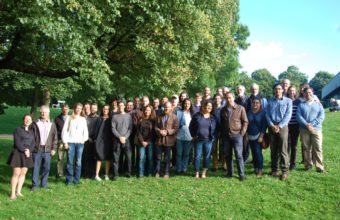
CIED together with Centre for Industrial Energy, Materials and Products (CIE-MAP) hosted the second International Exergy Economics Workshop on 13-15 July at the University of Sussex. Building on the first such workshop at the University of Leeds in 2014, the event brought together stakeholders and researchers in the field, with the aim to establish the …
Jan Rosenow,a Senior Research Fellow at CIED, called the Green Deal a “failure” when giving evidence at the House of Commons Public Accounts Committee
Governments and researchers need to remember that the most sophisticated endeavours won’t work if they’re not adopted.
Research by CIED has helped to inform the recently published UK Energy and Climate Change Committee report on Home Energy Efficiency.
New CIED research suggests energy service contracts are growing rapidly in the UK public sector, delivering substantial energy and carbon savings.
I was recently invited to give a talk at the Citenel Seenel conference hosted by the Brazilian Power Regulatory Agency (ANEEL) on 17-19th August in Sauipe, Bahia. The biannual Innovation and Energy Efficiency Seminar (VIII Citenel and IV Seenel) brings together industry, academia and government to discuss results and impacts of research and experience on …
The government’s decision to scrap the zero carbon homes target plus the equivalent for non-domestic houses is a major setback for achieving a low carbon UK and will undermine the credibility of the policy mix on building energy efficiency and beyond. The zero carbon homes target was announced in 2006 and, as the name suggests, …
On Monday 20th April, the International Energy Agency convened a workshop at its headquarters in Paris to discuss the state-of-the-art in evaluating the multiple benefits of energy efficiency. This workshop was attended by around 50 people: evaluators, policy makers and academics from over a dozen countries. The Sussex Energy Group was represented by Lee Stapleton. …
In proposing a 30% rather than a 40% energy demand reduction target, the European Commission is increasing the risks that European Union member states face from fossil fuel dependence and slowing the economic and social benefits of better insulated homes and lower energy bills. The EU should have the courage to adopt a legally binding …
A recent commentary piece in Ends report (UK’s energy efficiency plan not fully coherent’, by Paul Hatchwell, 7th May) is critical of DECC’s National Energy Efficiency Action Plan (NEAP).In the article Hatchwell refers to an assessment by the EU-wide Coalition for Energy Savings which concluded that the ‘UK’s plans were considered ‘assessable’, but classed as …